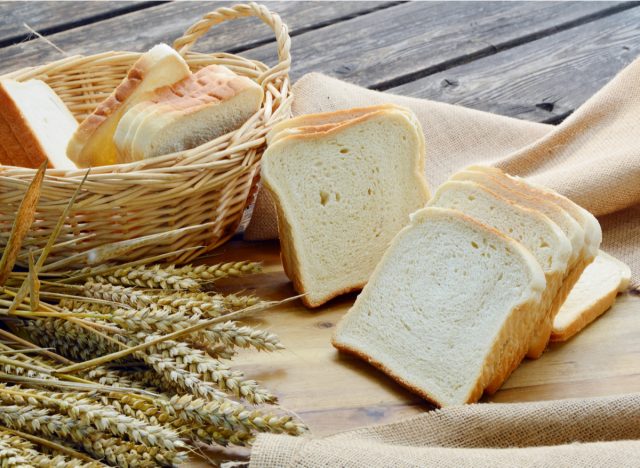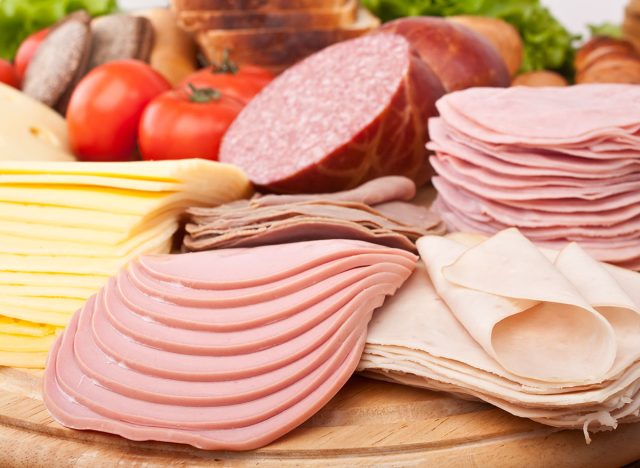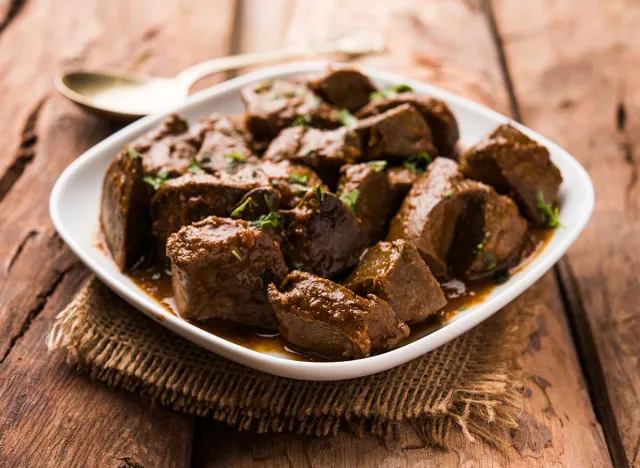11 Inflammatory Foods Wreaking Havoc On Your Body – The product recommendations in this post are recommendations by the writer and/or expert(s) interviewed and do not contain affiliate links. Meaning: If you use these links to buy something, we will not earn a commission.
Inflammation has been getting a lot of attention in the health and wellness world lately, and rightfully so. Chronic inflammation can have a profound impact on your overall health, and taking steps to reduce this effect may result in some majorly positive outcomes. If you are wondering what chronic inflammation actually is, how certain foods may trigger or contribute to inflammation, and which items are considered inflammatory foods, keep reading to learn everything you need to know about this important topic.
What is chronic inflammation?
Unlike acute inflammation, which is a short-term effect immediately experienced when there is an infection or tissue damage (like a deep cut on your body), chronic inflammation is slow, long-lasting, and isn’t necessarily localized. Essentially, with chronic inflammation, this effect is going on for too long.
Why is this a problem? While an acute response of inflammation can help the body combat a “foreign” object (like a splinter) or unwanted germs, chronic inflammation, over time, can lead to tissue damage and is linked to some unsavory side-effects, like hypertension, hyperglycemia, type 2 diabetes,, cardiovascular disease, various types of cancer, depression, and osteoporosis.
How might foods trigger or contribute to inflammation?
Chronic inflammation can be triggered by many factors, including autoimmune disorders, exposure to certain chemicals, and an infection that was not treated properly. And along with many factors that are not under your control, other factors that you can control–like your dietary choices, can impact your chronic inflammation risk as well.
While certain anti-inflammatory diets, like the Mediterranean Diet, are linked to reduced low-grade inflammation, the Western-style diet, which is rich in fried and processed foods, is associated with the opposite effect. Other foods may impact one’s risk of experiencing chronic low-grade inflammation as well.
Inflammatory foods to avoid
Eating a diet that is rich in omega-3 fatty acids, fiber, and polyphenols is typically recommended for those who want to reduce their chronic low-grade inflammation risk. In contrast, low consumption of fruits and vegetables and a diet rich in pro-inflammatory foods is linked to this condition.
Want to know which foods are pro-inflammatory? Here are 11 foods that may cause inflammation if they are consumed in abundance.

Margarine is a go-to for people who are avoiding butter but still want a creamy and rich spread on their morning toast. But, as Michelle Routhenstein, MS, RDN, CDE, CDN, registered dietitian at Entirely Nourished shares, “Margarine is an ultra-processed food that can cause inflammation in the body and negatively impact cardiovascular health.”
If you need a topping for your bread, try adding a drizzle of high-quality olive oil, like Brightland Olive Oil, instead of margarine.

Sure, sugar-sweetened beverages are delicious and can satisfy a sweet tooth. But, Wan Na Chun, MPH, RD, dietitian at One Pot Wellness shares that “Sugar-sweetened beverages have been shown in recent studies to increase chronic inflammation in the body by releasing pro-inflammatory cytokines”.
For soda lovers, opting for a pop that is made with less sugar than traditional sodas, like OLIPOP, may offer some benefit.

Certain fried foods can produce a compound called acrylamide, and some data suggests that high consumption of this compound is linked to inflammation. In this research, it’s french fries that had a stronger link to negative effects than others.
If you make your own fries, try cooking them at a lower temperature to potentially produce fewer acrylamides.
Moderate alcohol consumption appears to possibly be associated with reduced inflammation, but excessive alcohol consumption can have the opposite effect, acting as a pro-inflammatory agent. The Dietary Guidelines for Americans recommends that people choose not to consume alcohol, or to limit alcohol intake to 2 drinks or less in a day for men, and 1 drink or less in a day for women.
Also, mocktails are always a great option for people who want to reduce their alcohol intake.

Refined wheat flours have been stripped of their slow-digesting fiber and nutrients, which means your body breaks them down very quickly. The more quickly your body digests glucose-containing foods, the faster your blood sugar levels can spike. This also spikes your insulin levels—a compound associated with a pro-inflammatory response.
Data published in the European Journal of Clinical Nutrition shows that higher intake of refined grains is linked to higher inflammatory markers. Conversely, consumption of whole grains is linked to lower levels of these markers. So, try swapping out your refined grains with whole grain choices when you can.

Bisphenol A, or BPA, is a chemical that is used in certain packaging (like some canned foods) to prevent the can from rusting, or in some food storage containers. Unfortunately, this chemical may leach into your food, too. And data shows that exposure to BPA may induce chronic inflammation.
Many brands proactively advertise that their packaging is BPA-free, so be sure to seek out these choices.

Sausage, bacon, and hot dogs taste great, but eating them consistently may play a role in promoting low-grade systemic inflammation. Because of this, you may want to limit your processed meat intake if you are trying to reduce your chronic low-grade inflammation.

When you eat candy, you are basically eating pure sugar. And while doing so can be satisfying, doing this too frequently may contribute to your chronic inflammation.
Try limiting your intake of glucose, fructose, sucrose and High Fructose Corn Syrup (HFCS), which all get converted to the same compounds in the body during absorption.

We already know that eating fried food and high quantities of sugar are both linked to chronic low-grade inflammation. And when you combine both in one bite, like when you indulge in a donut, you are getting a double-whammy in the inflammation department.
Don’t miss | The 8 Best Almond Milks to Buy, According To Dietitians

Pasta is a unique refined grain because it has a lower glycemic index, but when it comes to promoting inflammation, observational data suggests that consumption of pasta, along with other pro-inflammatory foods, is linked to higher inflammation.

Organ meat, like liver, is packed with nutrients. But, this food also has pro-inflammatory potential, according to a paper published in Nutrients. Specifically, researchers reported that, after evaluating a 123-item food frequency questionnaire and whether there was a link between eating certain foods and elevated inflammatory markers, consumption of organ meats appears to be linked to more chronic low-grade inflammation.










